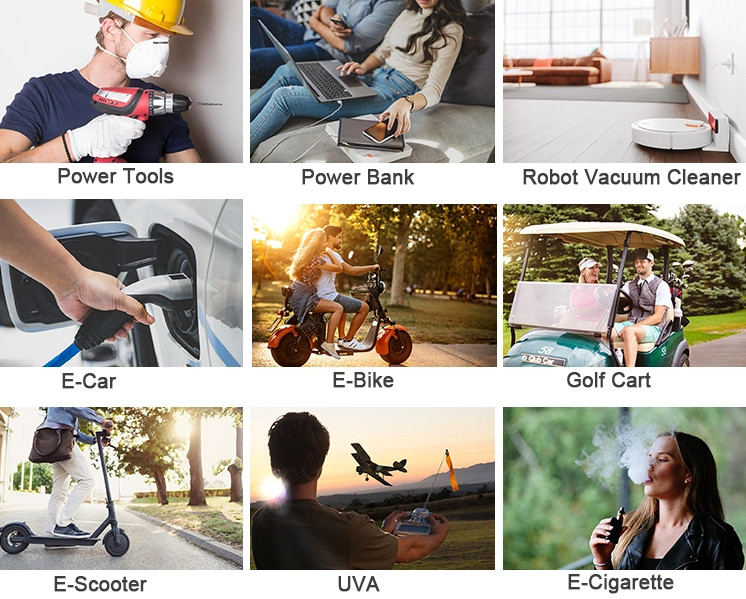Revolutionizing the Energy Industry: The Impact of Smart Grids and Lithium Batteries
In recent years, there has been a growing concern about the need to transition towards cleaner and more sustainable sources of energy. With the increasing demand for electricity and the urgency to reduce greenhouse gas emissions, the energy industry has been forced to explore new technologies and innovations. Two of the most promising advancements that are revolutionizing the energy industry are smart grids and lithium batteries.
Smart grids are a modernized version of the traditional electrical grid system. They incorporate advanced communication and automation technologies to optimize the generation, distribution, and consumption of electricity. By utilizing a network of sensors, meters, and control devices, smart grids enable real-time monitoring and management of energy flow. This allows for better coordination between power plants, renewable energy sources, and consumers, resulting in improved efficiency and reliability.
One of the key benefits of smart grids is their ability to integrate renewable energy sources into the grid. Traditional grids were designed to accommodate centralized power plants that rely on fossil fuels. However, with the increasing adoption of solar and wind energy, the generation of electricity is becoming more decentralized. Smart grids are capable of handling the variability and intermittency of renewable energy sources by dynamically adjusting the distribution and consumption of electricity. This not only reduces reliance on fossil fuels but also promotes the use of clean energy.
Lithium batteries, on the other hand, have emerged as a game-changer in the energy storage sector. Lithium-ion batteries, in particular, have gained popularity due to their high energy density, long cycle life, and fast charging capabilities. These batteries are widely used in portable electronic devices, electric vehicles, and now, in grid-scale energy storage systems.
The integration of lithium batteries into the energy industry has several advantages. Firstly, it enables better utilization of renewable energy. Energy generated from solar panels or wind turbines can be stored in lithium batteries during periods of low demand and released during peak hours. This reduces the need for backup power plants fueled by fossil fuels and allows for a more efficient use of clean energy.
Secondly, lithium batteries enhance grid stability and reliability. They provide a reliable source of power during blackouts or grid failures, ensuring uninterrupted electricity supply to critical infrastructure and residential areas. Additionally, they help balance the supply and demand of electricity, reducing the risk of power outages and grid instability.
Furthermore, lithium batteries facilitate the electrification of transportation. As the world moves towards a greener future, the demand for electric vehicles is increasing rapidly. Lithium batteries enable long-range driving, fast charging, and improved performance of electric vehicles, making them a viable alternative to traditional internal combustion engine vehicles. This not only reduces greenhouse gas emissions but also decreases our dependence on fossil fuels.
Despite these numerous benefits, there are still challenges that need to be addressed for the widespread adoption of smart grids and lithium batteries. One major hurdle is the cost. While the prices of lithium batteries have been decreasing steadily, they still remain relatively expensive compared to traditional energy storage options. Additionally, the installation and infrastructure costs associated with smart grids can be significant.

Another challenge is the need for regulations and policies that support the integration of these technologies. Governments and regulatory bodies need to incentivize the deployment of smart grids and lithium batteries through financial incentives and favorable policies. This will encourage investment in research and development, promote innovation, and accelerate the transition towards a cleaner and more sustainable energy future.
In conclusion, smart grids and lithium batteries are revolutionizing the energy industry by enabling the integration of renewable energy sources, enhancing grid stability, and promoting the electrification of transportation. While there are challenges to overcome, the potential benefits are significant. With continued advancements in technology, increased investment, and supportive policies, smart grids and lithium batteries have the power to reshape the energy landscape and pave the way towards a more sustainable future.
-
 Беспроводные клавиатуры стали незаменимым аксессуаром для многих пользователей компьютеров. Они предлагают удобство и гибкость, позволяя пользователям вводить текст и управлять своими устройствами на расстоянии. Одним из ключевых компонентов, питающих эти беспроводные клавиатуры, являются литиевые батареи. В этой статье мы рассмотрим преимущества и особенности беспроводных клавиатур с питанием от литиевых батарей. Литиевые батарейки...Читать далее
Беспроводные клавиатуры стали незаменимым аксессуаром для многих пользователей компьютеров. Они предлагают удобство и гибкость, позволяя пользователям вводить текст и управлять своими устройствами на расстоянии. Одним из ключевых компонентов, питающих эти беспроводные клавиатуры, являются литиевые батареи. В этой статье мы рассмотрим преимущества и особенности беспроводных клавиатур с питанием от литиевых батарей. Литиевые батарейки...Читать далее -
 In recent years, there has been a growing trend towards eco-friendly modes of transportation as people become more conscious of the impact of fossil fuel consumption on the environment. Electric scooters have emerged as a popular alternative for urban commuting due to their efficiency and environmentally friendly nature. At the heart of these electric scooters lies their battery, which plays...Читать далее
In recent years, there has been a growing trend towards eco-friendly modes of transportation as people become more conscious of the impact of fossil fuel consumption on the environment. Electric scooters have emerged as a popular alternative for urban commuting due to their efficiency and environmentally friendly nature. At the heart of these electric scooters lies their battery, which plays...Читать далее -
 With the increasing demand for sustainable and reliable energy sources, the use of smart grids has gained significant attention. Smart grids integrate advanced communication and information technology into the traditional electrical grid system, enabling two-way communication between consumers and utility providers. One crucial aspect of smart grids is the use of energy storage systems, such as lithium batteries. This article...Читать далее
With the increasing demand for sustainable and reliable energy sources, the use of smart grids has gained significant attention. Smart grids integrate advanced communication and information technology into the traditional electrical grid system, enabling two-way communication between consumers and utility providers. One crucial aspect of smart grids is the use of energy storage systems, such as lithium batteries. This article...Читать далее -
 Литий-ионные аккумуляторы покорили мир, и не без причины. Они высокоэффективны, имеют длительный срок службы и могут обеспечить большую мощность в небольшом корпусе. Одним из самых популярных типов литий-ионных аккумуляторов является аккумулятор LiFePO4. Этот тип аккумулятора невероятно популярен в самых разных областях применения из-за его длительного срока службы.Читать далее
Литий-ионные аккумуляторы покорили мир, и не без причины. Они высокоэффективны, имеют длительный срок службы и могут обеспечить большую мощность в небольшом корпусе. Одним из самых популярных типов литий-ионных аккумуляторов является аккумулятор LiFePO4. Этот тип аккумулятора невероятно популярен в самых разных областях применения из-за его длительного срока службы.Читать далее -
 С ростом спроса на чистую и устойчивую энергию внедрение литий-железо-фосфатных аккумуляторов (LiFePO4) приобрело значительную популярность. Эти батареи обладают многочисленными преимуществами по сравнению с традиционными свинцово-кислотными батареями, включая повышенную безопасность, более длительный срок службы и повышенную эффективность. Чтобы обеспечить надежное электропитание, крайне важно иметь эффективное зарядное устройство, которое сможет эффективно заряжать и обслуживать эти аккумуляторы.Читать далее
С ростом спроса на чистую и устойчивую энергию внедрение литий-железо-фосфатных аккумуляторов (LiFePO4) приобрело значительную популярность. Эти батареи обладают многочисленными преимуществами по сравнению с традиционными свинцово-кислотными батареями, включая повышенную безопасность, более длительный срок службы и повышенную эффективность. Чтобы обеспечить надежное электропитание, крайне важно иметь эффективное зарядное устройство, которое сможет эффективно заряжать и обслуживать эти аккумуляторы.Читать далее -
 Аварийный стартерный аккумулятор является важным элементом оборудования для тех, кто хочет быть готовым к неожиданным отключениям электроэнергии. Эти устройства предназначены для обеспечения надежного источника энергии в трудную минуту и могут стать спасательным решением для тех, кто полагается на электричество для питания своих домов и предприятий. В этой статье мы рассмотрим...Читать далее
Аварийный стартерный аккумулятор является важным элементом оборудования для тех, кто хочет быть готовым к неожиданным отключениям электроэнергии. Эти устройства предназначены для обеспечения надежного источника энергии в трудную минуту и могут стать спасательным решением для тех, кто полагается на электричество для питания своих домов и предприятий. В этой статье мы рассмотрим...Читать далее -
 With the continuous advancement of automobile technology, large capacity car start-stop battery has gradually become an important component in the field of modern automobiles. This battery not only provides a stable power supply for the car, but also plays an important role in energy conservation, emission reduction, and fuel economy. So how much do you really know about large capacity...Читать далее
With the continuous advancement of automobile technology, large capacity car start-stop battery has gradually become an important component in the field of modern automobiles. This battery not only provides a stable power supply for the car, but also plays an important role in energy conservation, emission reduction, and fuel economy. So how much do you really know about large capacity...Читать далее

